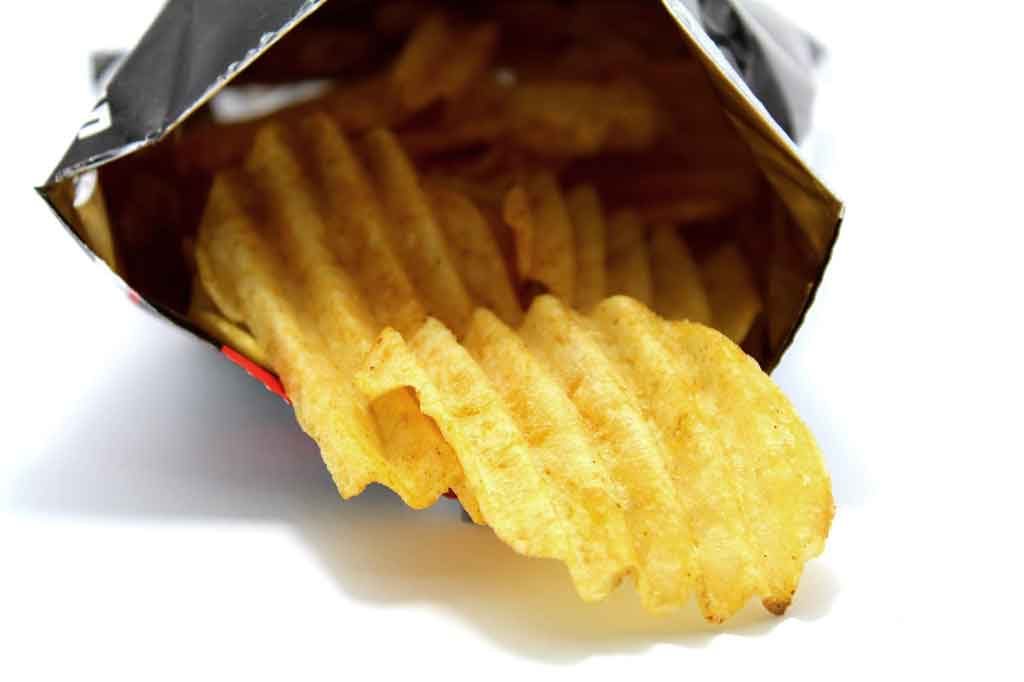Beware of These Foods That Flare
One of the biggest contributors to the onset of peripheral neuropathy is body toxicity. Your diet goes a long way towards helping your nerve endings stay healthy and to fight inflammation to relieve nerve pain. Here are seven foods to avoid when fighting neuropathy symptoms.
You are what you eat.
It’s an age-old saying — maybe even to the point of being a cliché — but it’s been around for so long for a very good reason: It’s true. What you put into your body dictates the way your body functions, in a very direct way.
Your body is affected by the things that you put into it in so many more ways than for energy or curb hunger. And the more we learn about the peripheral nervous system and what damages it, the more we discover that our diets are instrumental when it comes to keeping your nerves healthy and in good working order.
Keep a Healthy Body for Healthy Nerves
The food we eat influences so many things within the human body, and many of the things that your diet can have an impact on — whether positive or negative — directly contribute to the health of your nerves. If allowed to progress for long enough, an imbalanced diet that lacks key nutrients can lead to nerve damage, what we also call peripheral neuropathy.
But by that very same token, dietary improvements can be greatly beneficial to those suffering from the impact of peripheral neuropathy. Making the right changes to your diet can not only slow down the onset of peripheral neuropathy, but it can even help reverse those effects.
By providing nutrients your nerves need to thrive and at the same time eliminating that which causes inflammation, you give your nerves the environment they need to thrive. In many types of neuropathy, provided the severity has not reached the point of no return, lifestyle changes allow your body to repair itself in the way it is designed to do.
Avoiding some foods that are particularly unfriendly to your nerves is one of the keys to helping your body help itself, so let’s talk about some of the things you want to be sure to avoid if you’re dealing with peripheral neuropathy.
1. Glucose & High-Glycemic Foods

Diabetes and nerve damage are closely-related. The internal conditions caused by the onset of diabetes are toxic to your nerve endings, making type 2 diabetes one of the most commonly-observed causes of peripheral neuropathy.
One of the best ways to avoid these issues is by making sure to manage your glucose levels. A great way to do this is by avoiding high-glycemic foods, and build a diet that will help you to consistently keep your blood sugar level in check (and avoiding any unwanted spikes in insulin, in the process).
By avoiding foods that are high in carbs and high in sugars, you can avoid causing spikes in your blood sugar, which is usually followed up by an insulin response. Foods that are high in fiber can help to keep your glucose level in check — oats, brans, beans, and roughage work well for this.
Foods that have a glycemic index rating at or above 70 are among the ones you want to avoid most urgently. These include overripe bananas (they’re fine when they aren’t overripe, but they turn to sugar as they continue to ripen),; sugary fruits like apricots, pineapple, watermelon, mango, and papaya; as well as white potatoes and white rice, which are high in starch.
2. Alcohol

No matter which way you look at it, alcohol is just not good for your body. It’s a toxin, through and through, and continuing to expose your body to too much of it is one of the more common triggers for peripheral neuropathy. Its overconsumption leads to body toxicity, increased inflammation and vitamin deficiencies that are directly related to nerve health.
Healthy individuals can enjoy alcohol in moderation, like most things. But if nerve damage is already causing symptoms, it is not going to help your condition, and much more likely to go so far as making things worse. Alcohol should be banished until your condition has been reversed to where you no longer feel symptoms.
3. Heavy Metals

There are certain foods that can actually put us at risk for elevated levels of unsafe heavy metals. Mercury is the most common food-borne heavy metal, and according to the U.S. Food and Drug Administration, it’s present in a number of fish that are fairly regularly enjoyed due to the increasing presence of mercury in our oceans. Consuming a lot of fish can lead to inflammatory heavy metal accumulation, so it’s best to use caution when you’re selecting your favorite seafood.
One rule of thumb here is to watch out for older fish. The longer a fish can swim in our increasingly toxic waters, the more it can accumulate mercury.
Fish to be particularly cautious of consumption due to potential mercury accumulation are:
- king mackerel,
- marlin,
- orange roughy,
- tuna,
- swordfish,
- and shark.
It’s important here to point out that fish, generally speaking, are not bad for you. For the most part, they’re incredibly healthy, and fish oil is a great way to cut down on inflammation. So this is by no means a suggestion to avoid seafood altogether.
Instead, focus on strategies that can help you avoid fish that might contain elevated levels of mercury.
4. Pesticides & Preservatives on Produce

Fruits and veggies can, unfortunately, come to us loaded with toxins, as we North Americans tend to drench our produce with dangerous chemicals. The frustrating thing is that even when done with pure intentions, the chemicals that are designed to protect our produce from pests may do us the most harm.
You see, poisons we designed to kill pests like rodents and bugs are also pretty good at harming humans. And the skin on your favorite fruit or vegetable is a lot like your skin — it’s porous, and so it absorbs chemicals and compounds to which it’s exposed. So while washing your fruits and veggies before eating them is always a good idea, there are a certain amount of residual toxins that quite simply cannot be scrubbed out. This is one of the reasons why it’s best to go organic, whenever possible.
Another problem with produce is that many of the fruits and veggies we love so much get treated with chemicals that are designed to keep them looking better for longer, essentially increasing their shelf life once they reach the store. Produce at large chain supermarkets are typically transported a good long way before they get to the shelf where you pick them up, so they have to be given every advantage possible when it comes to staying fresh for as long as they can.
Unfortunately, the chemicals that help them do this may be adding more toxic load on your body, and therefore more inflammation.
The good news? There’s an easy workaround.
If you have access to something like a farmer’s market, this is a great way to purchase local and sustainably-grown produce. These fruits and veggies are far less likely to be treated with pesticides and other chemicals. Not only are they grown in smaller crops, for easier pest control, but they tend to be grown locally. This means less transportation, for fresher, better produce.
5. Gluten

It would be difficult not to notice the hype about gluten. You’ve watched gluten-free alternatives pop up on the shelves or markets and menus everywhere. You may have even questioned why. Here’s the thing — as we continue to learn about our bodies and the way certain foods impact them, we’re learning more and more that many people have a hard time processing gluten.
Gluten is a protein found in wheat, barley, and rye. While it’s not something that makes us immediately ill, there are a large number of people whose bodies simply don’t process it well. They are what is called gluten-sensitive or may have celiac disease. In these individuals, gluten can be a cause of chronic inflammation, which over time we know may lead to peripheral neuropathy.
And while a reaction to gluten may not be a direct cause of peripheral neuropathy for most people, it may cause an exacerbation due to chronic inflammation it may cause in the gut. In recent years, we have become aware that an inflamed gut causes a condition, often called leaky gut, where the intestinal lining becomes damaged and allows toxins and food particles we ingest to cross the barrier into our bloodstream.
This, in turn, can cause your body to flip up the inflammation switch.
6. Vitamin B6 Overdose

The family of B-vitamins is essential for maintaining healthy nerves. This is especially true of B6, which is also known as pyridoxine. It’s highly beneficial to your nerve function, as it helps your body synthesize the neurotransmitters that allow your nervous system to do its job.
Too much of any good thing turns it into a bad thing, however, and the same is true particularly of vitamin B6. If too much of it accumulates within the body, it can be especially damaging to the peripheral nervous system.
Foods that are high in Vitamin B6 include
- Spinach
- Carrots
- Brown Rice
- Sunflower Seeds
- Eggs
- Berries
- Fish
- Bananas
Many of the supplements that are available for you to purchase contain 100mg of B6 or more, and according to the University of Virginia Health System, ingesting more than 200mg per day can potentially cause nerve damage…in addition to other problems, like fatigue and vomiting.
So while you want to make sure you are getting plenty of vitamin B6 and all its family members, it’s important to monitor your intake, particularly if you take supplements, so you’re not consuming a nerve-damaging amount.
7. Trans Fats and Saturated Fats

Many of the tasty snacks and foods that we enjoy rely on a pretty heavy amount of oils and fats in their cooking process. While this might not seem to be a huge issue at first, the reality is that these foods are damaging to the nervous system, if enough of them are consumed over time.
Some foods use something known as hydrogenation, which refers to a process by which oils that start as a liquid are converted into more solid fats. We mostly see this in things like shortening and margarine, but the process is used in lots of snack foods and other fatty treats.
Your body responds to these foods by producing increased cholesterol, which, over time, essentially compromises the integrity of your blood vessels. They also inflame your arterial walls, which triggers more systemic instances of inflammation, as well.
All of these conditions are ripe for peripheral neuropathy, which means that these trans and saturated fats get added to the no-no list to avoid damage to your nerves.
Bottom Line: Make Your Body a Healthy Place for Your Nerves to Thrive
The foods that we put into our bodies go a long way towards impacting our nerve health — for better or worse, depending on our choices.
If peripheral neuropathy has already started to become an issue for you, take caution with the foods and supplements you consume that may be causing inflammation that further aggravates your condition.
Just as there are inflammatory triggers that can impact peripheral neuropathy negatively, there is plenty you can do to help reverse the impact, as well.
Replace inflammatory foods with nutrient-dense fresh whole foods, reduce the toxic load on your body by avoiding things like foods known to be high in heavy metals, hydrogenated fats, and pesticides.
Be mindful of supplement use, following the recommended dosage by a doctor or at least on the package labeling. Watch for reactions to certain foods known to be highly allergenic, such as gluten.
And perhaps the least popular of all, avoid alcohol, which is highly inflammatory and depletes your body of the nutrients your nerves need to function correctly.
3 Best Essential Oils for Soothing Nerve Pain

Peripheral neuropathy comes with a number of different symptoms, each one seemingly more troublesome than…
66% of Chronic Drinkers Have Alcoholic Neuropathy

Chronic alcohol consumption is a contributing factor in a high number of peripheral neuropathy cases.…
Complete Guide to CBD for Neuropathy

CBD seems to be in everything these days — oils, lotions, drinks, gummies, sprays, supplements,…
These 7 Foods Improve Nerve Health, Here’s Why

The foods we choose have a surprisingly direct impact on the health of the nervous…
8 Best Supplements for Neuropathy

We know that nutritional supplements -- in addition to a healthy diet -- can help…
Chronic Inflammation: The “Root” of Nerve Damage

Most of us think of the immune system as protection to keep us safe from…